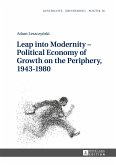In "A Short History of Germany," Mary Platt Parmele presents a concise yet expansive narrative that captures the multifaceted evolution of Germany from its earliest days to the early 20th century. Through a clear and engaging literary style, Parmele weaves together political, social, and cultural threads that define German history, employing a chronological approach that enhances readers' understanding of significant events and figures. The book is situated in a literary context that seeks to make historical narratives accessible to a broad audience, marking it as a notable contribution to the genre of historical writing during her time. Mary Platt Parmele, an accomplished historian and author, drew from her extensive travels and scholarly pursuits to create a text that not only informs but also captivates. Her background in education and deep interest in European history fueled her desire to synthesize complex historical narratives into a format that could engage readers unfamiliar with the intricacies of German culture and politics. Parmele's work reflects her belief in the importance of history as a tool for understanding contemporary society. This book is highly recommended for readers interested in European history, as it offers an accessible entry point into Germany's past, making it an invaluable resource for students, educators, and history enthusiasts alike. Parmele's ability to distill detailed historical accounts into an engaging narrative ensures that both novices and scholars will find value in her exploration of Germany's rich heritage.
Bitte wählen Sie Ihr Anliegen aus.
Rechnungen
Retourenschein anfordern
Bestellstatus
Storno








